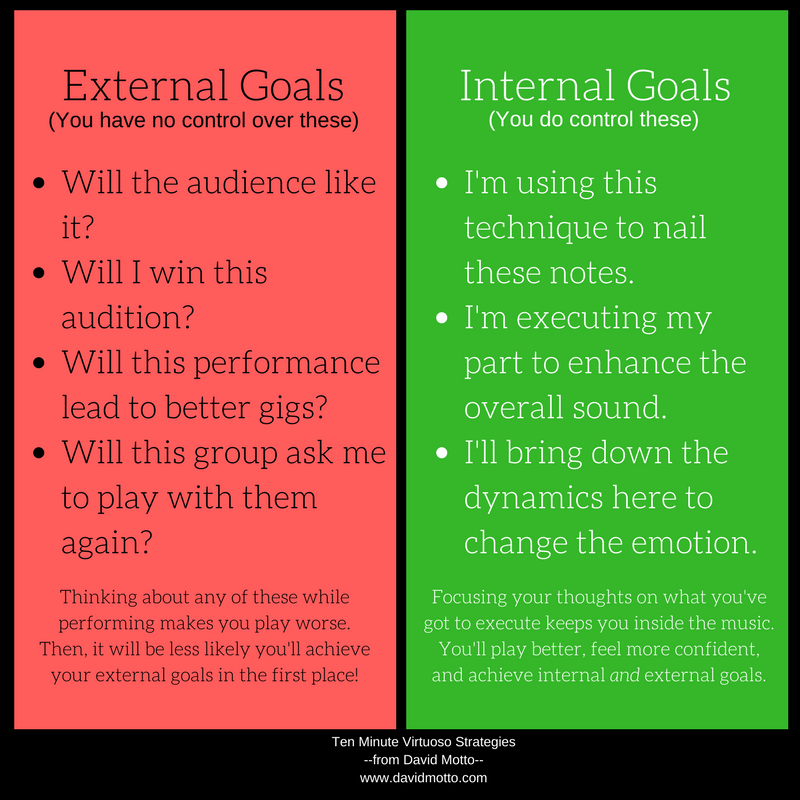David Motto’s Practice Tip of the Week:
Internal vs. External Goals
External Concerns
We spend a lot of time in our lives trying to impress other people and win their approval. Whether it’s our parents, teachers, friends, loved ones, audiences, or fellow musicians, we often worry about what other people think of our playing.
These external concerns interfere with the daily process that truly helps musicians succeed. Thinking about the success or failure of your next rehearsal, audition, or public appearance can cause train wrecks, performance anxiety, and general unhappiness.
Practicing for Yourself

Instead, try concentrating on your personal and technical goals. Directing attention to your internal goals is often referred to as “Practicing for Yourself.”
When you practice for yourself, you don’t worry about the outside world. In this paradigm, you create a vision of performing music in your own, unique way.
Being true to that vision gives practicing a level of excitement that is often missing for many musicians.
This sense of enthusiasm and personal enjoyment is the reason many musicians began playing in the first place!
Internal, Mastery Goals
Practicing for yourself means making a mental shift from external, performance-based goals to internal, mastery goals. This realignment of attention allows you to enjoy playing your instrument more and to feel true to yourself.
Here are some examples:
External Goals:
- What the audience thinks about the hardest section of the song.
- Wondering if this performance will lead me to even better opportunities.
- If I blow this audition or a first rehearsal, will they ask me to play with them again?
Internal Goals:
- Staying focused on technique to nail the hardest section of the song.
- Executing everything necessary so I feel satisfied with this performance.
- Focusing on my phrasing, dynamics, and articulations so my audition reflects how I truly want to play this music.
Being Your Best
Research shows that people who strive for success by focusing on their internal process, without regarding external benchmarks, are more likely to reach their target goals.
Think about that for a minute:
By focusing on the traditional, societal definition of “success,” you are less likely to achieve that success! Staying focused on your process, your thinking, your technique, your responsibilities gives you a better shot at getting what you want.
My take on this (though this didn’t specifically come up in the research) is that external thinking brings on levels of mental pressure and distraction that don’t allow you to be your best. This external thinking pulls you away from the technical demands of what you’re playing and limits your concentration on your execution – right when you need to be most focused on your playing.
If you want to be your best, practice for yourself. Keep your focus on what you can control, not on the external world.
To Your Musical Success!
–David Motto

This is so helpful to me. Thank you.